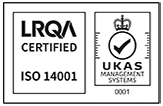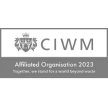What the Circular Economy means for the UK will be the core theme of next month’s annual gathering of the waste and resource management industry. Resourcing the Future 2016 (taking place in London on the 14th and 15th June), is the joint annual conference organised by the Chartered Institution of Wastes Management (CIWM), the Environmental Services Association (ESA) and the Resource Association (RA).
The Circular Economy
The circular economy, an alternative to a traditional linear economy (where we make, use and then dispose of products and materials), is one in which we keep resources in use for as long as possible, by extracting the maximum value from them whilst in use, then recovering and regenerating products and materials at the end of each service life.
The conference is also likely to highlight concerns that it still has too strong a focus on waste and too little on incentivising change higher up the supply chain and stimulating more stable secondary materials markets.
The EU Referendum
With the conference taking place just one week before the referendum, lively debate is expected on how important EU membership is for UK environmental policy and legislation, what the implications of a ‘Brexit’ might be and how can the industry prepare itself for a possible future outside the EU.
“The UK Government has set out its desired option of remaining in Europe and if the referendum result supports this, the EU Circular Economy package will shape our industry for the next decade and more,” says CIWM chief executive Steve Lee. “With important changes being proposed, including higher recycling and landfill diversion targets, new Extended Producer Responsibility (EPR) scheme requirements, and a stronger focus on biowaste, this event provides a chance to explore what the package means for the UK and how we can work collectively to deliver on its ambitions.”
Strategic and practical implications
The conference will also examine the strategic and practical implications for the UK, with sessions focused on what ‘tools’ and incentives will be needed to drive behaviour change and performance. Topics include the future role of Producer Responsibility and EPR in supporting resource efficiency and recycling both at the design end of the chain and at the point of disposal, economic incentives and other potential game changers such as ‘collection consistency’, and food waste.
Discuss how Rabbit Waste Management’s services could benefit your business by contacting us on 01903 762020 or info@rabbitgroup.co.uk




